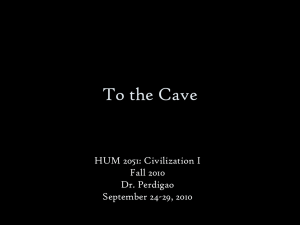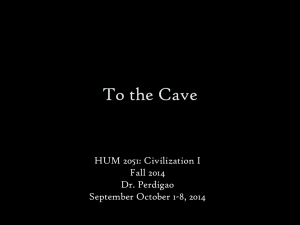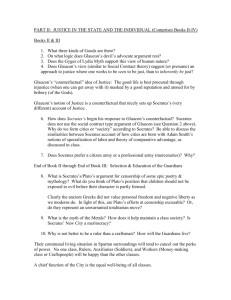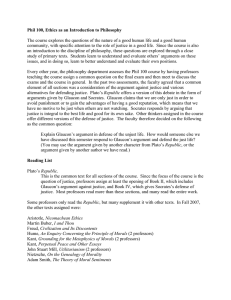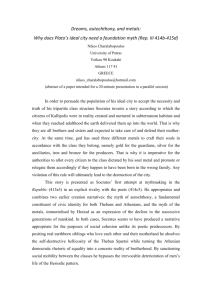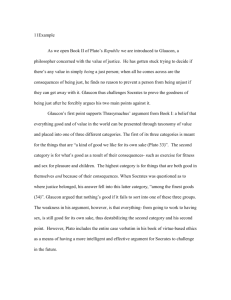Pig City Lost Jim Hamm (University of Minnesota) Pigs
advertisement
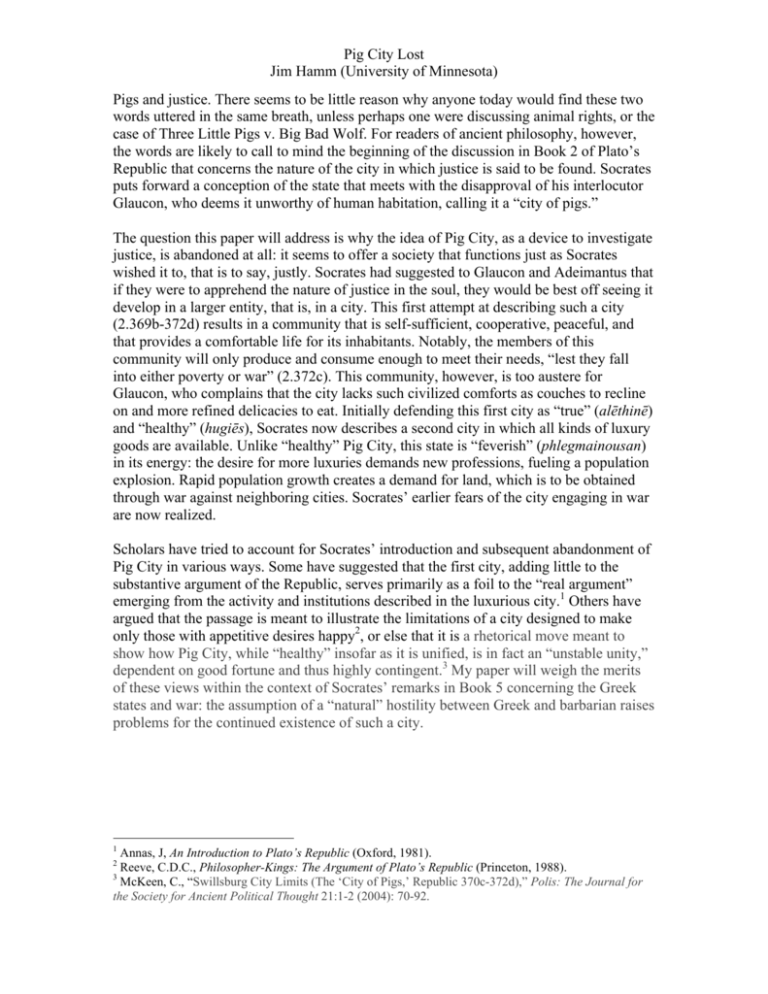
Pig City Lost Jim Hamm (University of Minnesota) Pigs and justice. There seems to be little reason why anyone today would find these two words uttered in the same breath, unless perhaps one were discussing animal rights, or the case of Three Little Pigs v. Big Bad Wolf. For readers of ancient philosophy, however, the words are likely to call to mind the beginning of the discussion in Book 2 of Plato’s Republic that concerns the nature of the city in which justice is said to be found. Socrates puts forward a conception of the state that meets with the disapproval of his interlocutor Glaucon, who deems it unworthy of human habitation, calling it a “city of pigs.” The question this paper will address is why the idea of Pig City, as a device to investigate justice, is abandoned at all: it seems to offer a society that functions just as Socrates wished it to, that is to say, justly. Socrates had suggested to Glaucon and Adeimantus that if they were to apprehend the nature of justice in the soul, they would be best off seeing it develop in a larger entity, that is, in a city. This first attempt at describing such a city (2.369b-372d) results in a community that is self-sufficient, cooperative, peaceful, and that provides a comfortable life for its inhabitants. Notably, the members of this community will only produce and consume enough to meet their needs, “lest they fall into either poverty or war” (2.372c). This community, however, is too austere for Glaucon, who complains that the city lacks such civilized comforts as couches to recline on and more refined delicacies to eat. Initially defending this first city as “true” (alēthinē) and “healthy” (hugiēs), Socrates now describes a second city in which all kinds of luxury goods are available. Unlike “healthy” Pig City, this state is “feverish” (phlegmainousan) in its energy: the desire for more luxuries demands new professions, fueling a population explosion. Rapid population growth creates a demand for land, which is to be obtained through war against neighboring cities. Socrates’ earlier fears of the city engaging in war are now realized. Scholars have tried to account for Socrates’ introduction and subsequent abandonment of Pig City in various ways. Some have suggested that the first city, adding little to the substantive argument of the Republic, serves primarily as a foil to the “real argument” emerging from the activity and institutions described in the luxurious city.1 Others have argued that the passage is meant to illustrate the limitations of a city designed to make only those with appetitive desires happy2, or else that it is a rhetorical move meant to show how Pig City, while “healthy” insofar as it is unified, is in fact an “unstable unity,” dependent on good fortune and thus highly contingent.3 My paper will weigh the merits of these views within the context of Socrates’ remarks in Book 5 concerning the Greek states and war: the assumption of a “natural” hostility between Greek and barbarian raises problems for the continued existence of such a city. 1 Annas, J, An Introduction to Plato’s Republic (Oxford, 1981). Reeve, C.D.C., Philosopher-Kings: The Argument of Plato’s Republic (Princeton, 1988). 3 McKeen, C., “Swillsburg City Limits (The ‘City of Pigs,’ Republic 370c-372d),” Polis: The Journal for the Society for Ancient Political Thought 21:1-2 (2004): 70-92. 2
